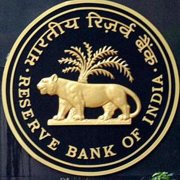About | Reserve Bank of India (RBI) , All INDIA Check here latest notification
The Reserve Bank of India (RBI) is India's central banking institution, responsible for overseeing the country's monetary policy, regulating and supervising its financial systems, and issuing and managing the Indian Rupee currency. Established on April 1, 1935, during British colonial rule, the RBI plays a crucial role in India's economic stability and growth.
Functions and Responsibilities:
Monetary Policy: The RBI formulates and implements monetary policies to control inflation, stabilize prices, and foster economic growth. It uses various tools such as repo rates, reverse repo rates, and open market operations to influence money supply and interest rates.
Banking Regulation: RBI regulates and supervises banks and financial institutions in India to ensure the safety and soundness of the banking system. It issues licenses, sets capital requirements, and conducts inspections.
Currency Issuance: The RBI has the sole authority to issue and manage the Indian Rupee. It ensures an adequate supply of currency notes and coins in the economy.
Foreign Exchange Management: It manages India's foreign exchange reserves and formulates policies related to foreign exchange control.
Developmental Role: The RBI promotes and supports initiatives that contribute to the development of the financial sector, including the establishment of payment and settlement systems, and fostering financial inclusion.
Banker to the Government: It acts as the banker and financial advisor to the central and state governments, facilitating their borrowing and managing their accounts.
Financial Stability: RBI monitors and safeguards the overall financial stability of the country, intervening when necessary to prevent systemic crises.
Research and Data: The institution conducts economic research, collects and publishes financial data, and provides economic analysis and forecasts.
Governance:
The RBI is governed by a central board of directors headed by the Governor. The central board is appointed by the Government of India. The bank's functions and policies are guided by the Reserve Bank of India Act, 1934.
In conclusion, the Reserve Bank of India plays a pivotal role in India's economic and financial landscape. It ensures the stability of the financial system, regulates banks and financial institutions, and formulates monetary policies to achieve the country's economic objectives.




